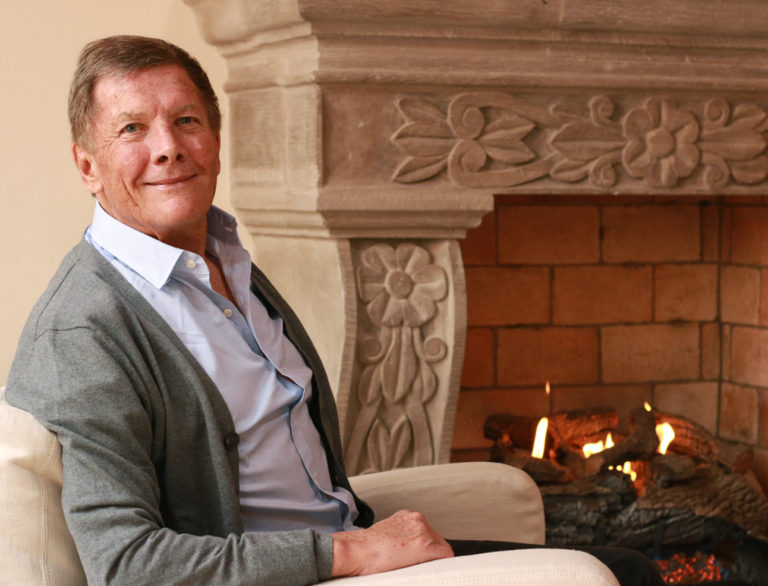
About Dr. schwarzbeck
“Efforts and courage are not enough – without purpose and direction.”
-John F. Kennedy

Extensive Experience in Multiple Facets of Clinical Psychological and Couple Care
As a recipient of numerous awards, international fellowships, competitive internships and decades of experience in private practice; Dr. Schwarzbeck has given a lifetime to those in need of help supporting them to achieve success, more fulfilling lives and peace of mind.
Timeline
of Dr. Charles Schwarzbeck
-
1970
Awarded Ed.M., Boston University
-
1976
Awarded Ph.D., Clinical Psychology, University of Texas at Austin
-
1976
Internship, Children’s Hospital National Medical Center, Washington D.C.
-
1978
Chief Psychologist, Psychiatric Institute, Washington, D.C.
-
1979
Fellowship at the Tavistock Institute, London, U.K.
-
1982
Faculty, Department of Psychiatry, George Washington University School of Medicine & Health Sciences, Washington, D.C.
-
1984
Advantage: Students and Teachers, Washington, D.C.
-
1989
Faculty, University of Washington School of Medicine and Seattle Children’s Hospital; Private Practice, Seattle, Washington
-
1993
Faculty: University of British Columbia School of Medicine and Children’s Hospital, Vancouver, B.C.
-
2001
Executive Coach: Authentic Leadership, Managing Risk, Branding, Strategy, Negotiation, Valuation, Executive Trajectories, Financial Planning, Seattle, Washington
-
2008
Object Relations Couple Therapy Training, Seattle, Washington
-
2017
Private Practice, San Miguel de Allende, GTO, and Queretaro, QRO, Mexico
-
2018
International Couple Institute, San Miguel de Allende, Mexico
Biography
Early Education and Direction
Charles grew up in the New York area, where he attended Brooklyn Technical High School and Amityville Memorial High School. He enjoyed math and sciences, student government, tutoring, played baseball and swam competitively.
Dr. Schwarzbeck’s College Education
Dr. Schwarzbeck attended Kenyon College for his undergraduate studies. Area emphases were Biology, Chemistry and Psychology.
Senior Thesis: “Evolutionary History of Viruses”
BA, Psychology, 1967, Kenyon College
Post College
Dr. Schwarzbeck relocated to Massachusetts in 1967, where over a 5 year period, he directed his learning to laboratory science, education and cognitive science and clinical care.
He was a laboratory assistant at M.I.T. in microbiology in 1967-1968 in the laboratory of Salvador Luria. Dr. Luria’s lab was then focused on the relationship of cell membrane damage within cancer research studies.
Dr. Schwarzbeck moved to Beth Israel Hospital in Boston (now Beth Israel Deaconess Hospital) in 1968. He worked for Dr. T. Berry Brazelton in the care of babies and their parents. He learned and administered the Brazelton Neonatal Behavioral Assessment Scale to very young babies used in creations of clinical care plans for babies, and unique parent-infant care-giving strategies. The N.B.A.S. remains at the forefront on neonatal assessment and clinical care. Dr. Schwarzbeck subsequently used this training and experience ten years later, when he joined Dr. Bowlby and his attachment procedures for infant care in London.
Subsequently in 1969, Dr. Schwarzbeck worked at the Boston VA Hospital where he learned about trauma-induced personality change. During this time he helped injured soldiers who had returned from the Vietnam War. During this time, he also taught science at a Cambridge high school.
In 1970, Dr. Schwarzbeck was appointed to the clinical staff at Massachusetts General Hospital and the Erich Lindemann Mental Health Center. He worked in adolescent care at the Adolescent Service at Boston State Hospital. Clinical Supervisors: Anton O. Kris, M.D. and Gerald Klerman, M.D.
In 1971-1972, Dr. Schwarzbeck regularly attended lectures at Sloan School at M.I.T. with Prof. Harry Levinson. This was his first exposure to financial plans and executive leadership.
Graduate Studies in Education and Cognitive Science
In 1967, Dr. Schwarzbeck attended graduate school in Education and Cognitive Science at Boston University. His primary emphases were learning, memory and cognitive organization.
Thesis: “Top-Down Processing and Teaching Techniques”
Graduation Presentation (1969): “Cognitive Disorganization Under Stress in High School Students”
Masters in Education, Ed. M.; Education and Cognitive Science, 1969 S.E.D. (School of Education), Boston University
Doctoral Studies in Clinical Psychology
In 1972, Dr. Schwarzbeck was awarded an N.I.M.H. Fellowship for all of his doctoral studies in clinical psychology. He began graduate study in Clinical Psychology at the University of Texas at Austin. Clinical rotations were at clinics and hospitals within the University health system. In addition, Dr. Schwarzbeck participated in three 4-month rotations at the Menninger Foundation in Kansas.
Training emphasis: psychoanalytic care of children and adults.
1975: Pre-Doctoral Presentation: “Underlying cognitive organizations, that are specific for specific personality disorder diagnoses”
1976: Student Award for Excellence and Clinical Presentation, Menninger Clinic, “Tracking Comparison of Results of Interpretation within Transference vs. Advice -Giving vs. Affect Designation in Psychoanalytic Psychotherapy: 16 Cases”
1976: Recipient of the Norman Prentice Pre-Doctoral Award for Excellence and Leadership in Clinical Psychology
Dissertation 1976: “Development of Role-taking Abilities in Children as Functions of Family Constellations”
Ph.D. Clinical Psychology, 1976, Graduate School, University of Texas at Austin
Internship, Fellowship
1976-1977: Intern, Children’s Hospital National Medical Center, Washington, D.C.
1977-1978: Fellow, Children’s Hospital National Medical Center, Adolescent Service, Washington, D.C.
1978-1979: Chief Clinical Psychologist, Psychiatric Institute, Washington, D.C.
Training in London
1979-1980: Infant Care, Tavistock Clinic (London) and Royal Free Hospital (London) Course tutors: John Bowlby FRc Psyc, Martha Harris, Infant-Parent Care Tavistock Institute and Royal Free Hospital.
1979-1980: Couples therapy training, Tavistock Clinic
1981 – Executive Education Program at the London School of Economics: Anthony Giddens, Ph.D., David Campbell, Ph.D. and Robert Solow, Ph.D. Learning emphasis: product-growth and leadership.
Return to Washington, D.C.
1981-1987: Clinical Private Practice
1981: Faculty, Department of Psychiatry, George Washington University School of Medicine
International Psychotherapy Institute & Washington School of Psychiatry, Training in sex therapy and Tavistock couples therapy, Primary tutors: Jill Scharff, M.D. and David Scharff, M.D.
Relocation to the Pacific Northwest
1987-1990: Clinical Private Practice, Northwest Psychoanalytic Clinic
1989-1999: Faculty, University of Washington School of Medicine. Focus: Infant-Parent Care, Developmental Psychotherapy for Young Children, Couple Therapy, Forensic Assessment and Testimony
1989–2017: School consultant, advisor to school heads, boards; curriculum-design; I.B.O., C.C.; trainings for teachers; presentations for parents; Exemplary College Prep and college advisory for college admission and scholarship
1990-2017: Private practice, Seattle: Couples therapy, Infant-toddler consultation, Psycho-therapy, counseling: children and adults, hospital consultation, forensic services
1997-2002: Faculty, University British Columbia (UBC) School of Medicine. Resident supervision, British Columbia Children’s Hospital: Resident supervision. Care and consultation for parents and infants at BC Women’s Hospital & Health Centre.
2001-2017: Creative Leadership Training: executive leadership coaching; presentation and consulting to businesses groups
Relocation to Central Mexico
2017: Relocation to San Miguel de Allende, GTO
2017: Remote and in-person counseling, psychotherapy, couples therapy, business coaching, and school consultation
2018: International Couple Retreat: founded in S.M.A: a week-long couples therapy that is architected for each couple. Remote meetings are used to formulate needs and interests. Retreats are created and scheduled with daily couple care alternating with cultural and outdoor events. The care structure is based in the Tavistock Relationships model and care procedures. Within this care structure, couples create reliable intimate, partnering gains.
2019: Teacher, Schools consultation: curriculum, teacher training, assessment, consultant, school community presentations.

Schedule an informational consultation
Partnering to develop insights and a creative action plan which is designed to enable change and bring results. The initial consultation is complimentary.